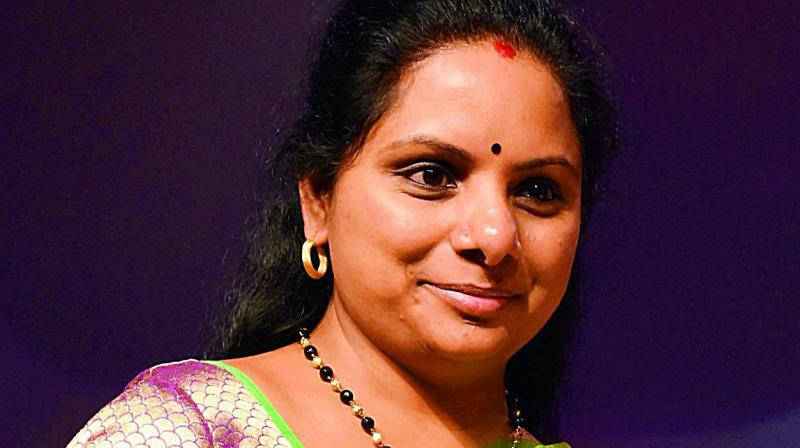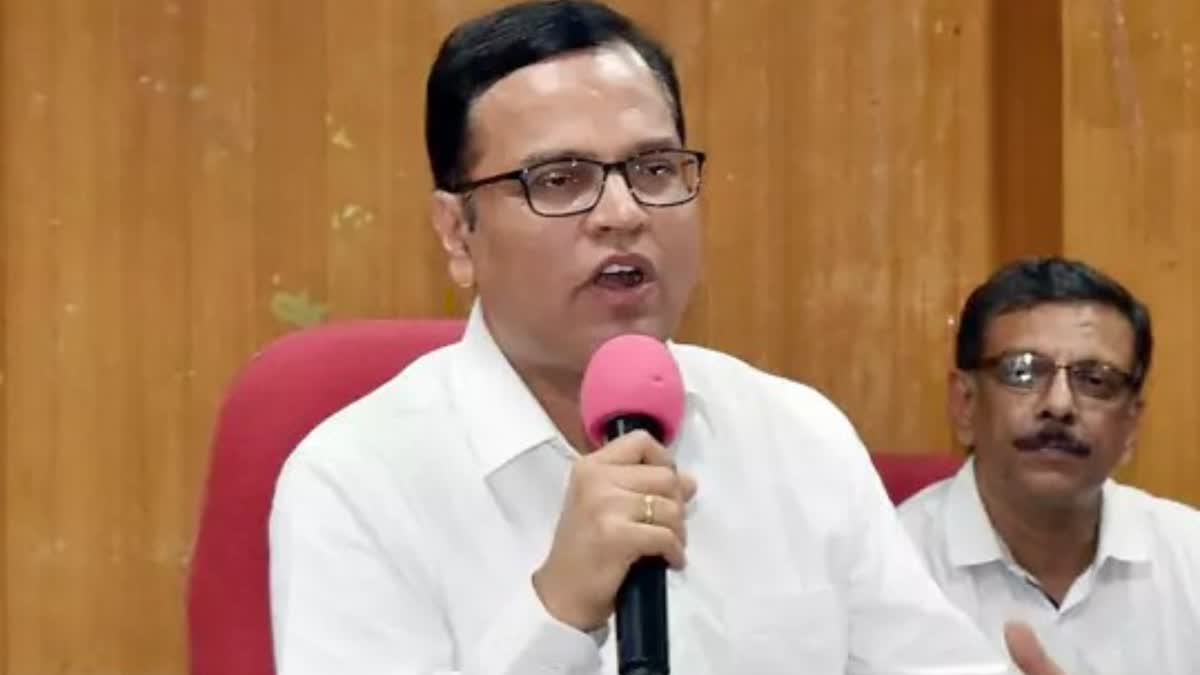Hopeful that Women’s Bill will be passed next session, says Kavitha
Sat 17 Mar 2018, 15:53:07

Hyderabad: Even as the clamor around passing the Women’s Reservation Bill grows day-by-day, Member of Parliament from Telangana K Kavitha is hopeful that it will be passed in the next session of the Parliament.
“It is high time we get the Women’s Reservation Bill passed. If not this session, then at least next session the bill should see the light of the day. The bill will surely bring about the required change in the women’s representation in politics and will help in fighting for women’s rights in a better fashion,” Kavitha said at the ’Leadership Summit – Led by Women’ organised by the Centre for Management Studies of the Nalsar University of Law in Hyderabad on Saturday.
When asked about why the bill has not been able to pass since its introduction in 2008, the Nizamabad MP said that the lack of political will from the previous regime of UPA and the current regime of NDA was a major reason hampering the progress of the bill. On the issue of having women politicians as a token gesture, she said, “While for one or two terms we may
have women leaders filling in the shoes of their powerful male politicians but at least after that we will see real leaders taking charge.”
have women leaders filling in the shoes of their powerful male politicians but at least after that we will see real leaders taking charge.”
Kavitha also highlighted the various problems that women face on a daily basis in society like pay gap, domestic violence, safety and security and said that women need to be bold and should not shy away from demanding their rights. However, she also expressed concern on why women empowerment and related issues were discussed only in March and why it was not part of year-long discussions.
“Why should the onus of championing women-related causes be put on only women and why cannot men champion the cause? The spirit of women empowerment has to come from men,” she said.
Reiterating this viewpoint, senior journalist Sagarika Ghose said women need to develop designer insanity in order to be taken seriously. “We need women in leadership roles and for that to happen it is important that women need to have good male mentors. In addition, angry women are highly unacceptable in our society,” Ghose said.
No Comments For This Post, Be first to write a Comment.
Most viewed from Hyderabad
Most viewed from World
AIMIM News
Latest Urdu News
Most Viewed
May 26, 2020
Do you think Canada-India relations will improve under New PM Mark Carney?
Latest Videos View All
Like Us
Home
About Us
Advertise With Us
All Polls
Epaper Archives
Privacy Policy
Contact Us
Download Etemaad App
© 2025 Etemaad Daily News, All Rights Reserved.




.jpg)
.jpg)
.jpg)
.jpg)
.jpg)







.jpg)
.jpg)
.jpg)























